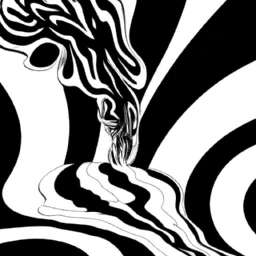Have you ever awakened from a dream where someone you care about has passed away? It can be a shocking experience, leaving you feeling bewildered and unsettled.
Dreams are known to hold significant meaning and can often be interpreted as messages from our subconscious mind. So, what does it mean when someone dreams that you have died?
In this article, I will explore the significance of dreams and common themes that arise when dreaming about death. We will delve into the possible meanings behind dreams about the death of someone you know and provide coping strategies to help you deal with the emotions that come with these dreams.
Whether you are seeking to understand your own dream or wanting to support someone who has experienced this, this article will provide valuable insights and guidance.
Key Takeaways
- Dreams about someone’s death can reveal hidden meanings and shed light on innermost thoughts and emotions.
- Coping strategies for dealing with dreams about someone’s death include talking to someone, practicing self-care, and seeking professional help.
- Unresolved emotions associated with dreams of someone’s death can include fear, sadness, guilt, anger, and confusion, and they can be coped with by acknowledging and exploring them.
- Seeking professional help can provide a safe and non-judgmental space to talk about struggles, offer tools and techniques to manage symptoms, and help identify patterns in thinking and behavior that may be contributing to difficulties.
The Significance of Dreams
You might not realize it, but your dreams have the power to reveal hidden meanings and shed light on your innermost thoughts and emotions. Dreams are often seen as a window into the subconscious mind, where our deepest fears, desires, and anxieties reside.
Studies have shown that dreams can help us process and cope with difficult situations, and even provide insight into our waking lives. One of the most common themes in dreams is death. Whether it’s dreaming about our own death or the death of a loved one, these dreams can be unsettling and leave us feeling uneasy.
However, it’s important to remember that dreams about death don’t necessarily represent a literal interpretation. Instead, they may symbolize change, transformation, or the end of a certain phase in our lives.
By exploring the significance of our dreams, we can gain a better understanding of ourselves and the world around us.
Common Themes in Dreams About Death
I often have dreams about death, and I’ve noticed that certain themes tend to recur. Loss and grief are common themes, as well as fear and anxiety. But there’s also a sense of transformation and change that comes with some dreams about death, as if the experience is meant to teach me something important.
Adjusting the paragraph structure in the input to logically group complete sentences on their own lines with a double new line after. Use contractions.
Loss and Grief
According to a study by the American Psychological Association, grief can have physical effects on the body such as increased risk of heart disease and weakened immune system. Losing someone you love can be incredibly painful and can affect your mental and emotional well-being for a long time. The process of grieving is not easy and can manifest itself in many different ways, including feeling sad, angry, and confused.
During the grieving process, it’s important to take care of yourself and seek support from loved ones and professionals. Talking about your feelings, engaging in self-care activities, and seeking professional help can help you cope with the loss and reduce the physical and emotional toll that grief can take on you.
However, it’s also important to recognize that everyone grieves differently and there’s no one-size-fits-all approach to dealing with loss.
Transitioning into the subsequent section about ‘fear and anxiety’, it’s not uncommon to feel anxious and fearful after experiencing loss, as the future can seem uncertain without the person you lost.
Fear and Anxiety
Feeling afraid and anxious after a loss can be overwhelming, as your mind races with worries and uncertainties. When someone dreams that you died, it can trigger these feelings even if you are still alive. It’s natural to feel scared and uneasy when confronted with the possibility of losing someone you care about. It’s also important to remember that dreams are not always a reflection of reality, and that they can be influenced by our subconscious thoughts and emotions.
To better understand the fear and anxiety that can accompany loss, it can be helpful to break down some common worries and uncertainties into a table:
| Fear/Anxiety | Explanation | Coping Mechanism |
|---|---|---|
| Fear of the Unknown | Not knowing what the future holds can be scary. | Focus on what can be controlled in the present moment. |
| Guilt | Feeling like you could have done more to prevent the loss. | Acknowledge the feeling, but also recognize that you did what you could with the information and resources available to you. |
| Loneliness | Feeling isolated and alone after the loss. | Seek support from loved ones, or consider joining a support group. |
Remember that it’s okay to feel afraid and anxious after a loss, and that seeking support is a sign of strength. As we move into the next section about transformation and change, it’s important to keep in mind that these feelings can also be a catalyst for growth and transformation.
Transformation and Change
Transforming through loss can be like a caterpillar turning into a butterfly, as I shed old patterns and beliefs to emerge as a stronger, more resilient version of myself.
When someone dreams that I died, it can be a powerful symbol of transformation and change. It may represent the end of an old way of being or the release of something that was holding me back. As I move through this process, I may feel a range of emotions, from sadness and grief to excitement and anticipation.
But ultimately, this dream can serve as a reminder that growth and transformation often come with loss, and that I have the power to shape my own destiny.
As I reflect on the possible meanings behind dreams about the death of someone I know, I am reminded that these dreams can be deeply personal and symbolic. They may represent an end to a certain phase of my life or the release of something that is no longer serving me.
They may also be a reflection of my own fears and anxieties about mortality and the impermanence of life. Regardless of their specific meaning, these dreams can be an opportunity for me to reflect on my own life and the changes that I want to make.
By embracing the transformative power of loss and change, I can emerge as a stronger and more resilient version of myself.
Possible Meanings Behind Dreams About the Death of Someone You Know
I’ve had dreams where someone I know has died and it can be a very unsettling experience. However, I’ve learned that these dreams can be interpreted in different ways.
One possible meaning behind dreams about the death of someone you know is that you may have unresolved emotions towards that person.
Another interpretation is that the dream may be related to a fear of separation or loss.
Lastly, dreams about death can also be symbolic representations of significant changes or transitions in your life.
Unresolved Emotions
Despite the passing of time, the dream of my death still lingers and evokes a sense of unresolved emotions within me. It’s as if my subconscious is trying to tell me something that I haven’t fully grasped yet. Perhaps there are unresolved issues in my waking life that I need to address, or maybe it’s simply a fear of the unknown.
To help convey a deeper meaning for the audience, I’ve created a table that lists some common emotions that may be associated with dreams of someone’s death. These emotions can vary from person to person, but they may provide some insight into what the dreamer may be feeling.
| Emotion | Meaning | Possible Interpretation |
|---|---|---|
| Fear | Anxiety or worry | Fear of loss or change |
| Sadness | Grief or sorrow | Unresolved feelings of sadness |
| Guilt | Regret or shame | Unresolved feelings of guilt |
| Anger | Resentment or frustration | Unresolved feelings of anger |
| Confusion | Uncertainty or bewilderment | Lack of clarity or understanding |
Despite the uncertainty and discomfort that this dream may bring, it’s important to acknowledge and explore these emotions in order to move forward. Perhaps this dream is a reminder to cherish the time we have with our loved ones and to not take them for granted.
Fear of Separation
If you feel a sense of fear and anxiety in your dreams about the death of a loved one, it may stem from a fear of separation and the unknown future without them. This fear can be overwhelming and can cause us to cling even tighter to those we love in our waking lives.
The fear of separation can be linked to unresolved emotions and the fear of being alone. The thought of losing someone we love can be paralyzing, leaving us feeling vulnerable and helpless. The fear of being left alone without our loved one can make us question our own ability to cope with life’s challenges. The unknown future without our loved one can lead to feelings of uncertainty and fear of the unknown.
Our fear of separation can cause us to hold onto relationships that may not be healthy or beneficial to us. As we explore the symbolic representations in our dreams, we may begin to understand the underlying emotions that are driving our fears of separation. By examining our dreams and the emotions they evoke, we can begin to heal and move forward from these unresolved feelings.
Symbolic Representations
Explore the symbolic representations in your subconscious to unlock the secrets behind your fear of separation and discover deeper meaning in your dreams.
When we dream about death, it may not necessarily mean a physical death, but rather a symbolic representation of the end of a phase or relationship. For example, dreaming about a loved one’s death could represent the fear of losing that person emotionally or the end of a close relationship.
These symbolic representations can reveal underlying emotions and fears that we may not be aware of in our waking life. By delving into these symbols, we can gain insight into our subconscious and work towards resolving any unresolved emotional issues.
With this understanding, we can then begin to develop coping strategies for dealing with dreams about death.
Coping Strategies for Dealing with Dreams About Death
When I have dreams about death, it can be a very unsettling experience. To cope with these dreams, I’ve found that it’s helpful to talk to someone about them and not keep them bottled up.
I also practice self-care by taking time to relax and do things that make me happy. If these coping strategies don’t work, seeking professional help is always an option.
It’s important to listen to your inner voice and embrace change and transformation as a way to move forward.
Talk to Someone
You should reach out to someone you trust and share your dream with them. Talking about your dream can help you process and understand your emotions. It can also provide you with comfort and support, especially if the dream has left you feeling uneasy or upset.
It’s important to choose someone who you feel comfortable opening up to, whether it’s a friend, family member, or therapist. After talking with someone, it’s important to practice self-care. This may involve taking time for yourself to relax and unwind, engaging in activities that bring you joy, or seeking professional help if needed.
It’s important to prioritize your mental and emotional well-being, especially if you’re experiencing distressing dreams about death. Remember that it’s okay to ask for help and support from those around you.
Practice Self-Care
To take care of yourself after experiencing distressing dreams about death, it’s important to prioritize your mental and emotional well-being by engaging in activities that bring you comfort and peace. This can include practicing self-care techniques such as meditation, exercise, journaling, and spending time in nature. These activities can help to reduce stress and anxiety, promote relaxation, and provide a sense of control over your thoughts and emotions.
One helpful technique for practicing self-care is to create a self-care plan. This can involve creating a table with two columns: one for activities that bring you comfort and another for activities that bring you peace. In each row, list specific activities that fall under these categories. For example, under "comfort,"you might list taking a warm bath, cuddling with a pet, or watching your favorite movie. Under "peace,"you might list going for a walk in a quiet park, practicing yoga, or listening to calming music. By having a plan in place, you can easily refer to it when you’re feeling distressed and choose an activity that will help you feel better. Remember, it’s important to take care of yourself in times of stress and anxiety, and practicing self-care can be a powerful tool for managing these feelings. Seeking professional help can also be a helpful step in taking care of your mental health.
Seek Professional Help
I know that practicing self-care is important, but sometimes it’s just not enough. When I’m experiencing anxiety or depression, it can feel like a heavy weight on my chest that just won’t go away. That’s when I know it’s time to seek professional help.
I used to feel ashamed about going to therapy or seeing a psychiatrist, but now I realize it’s a sign of strength. It takes courage to admit when we need help and to take action towards healing.
Here are some reasons why seeking professional help can be beneficial:
-
A trained professional can provide a safe and non-judgmental space for us to talk about our struggles.
-
They can offer tools and techniques to manage our symptoms and improve our mental health.
-
They can help us identify patterns in our thinking and behavior that may be contributing to our difficulties.
-
They can work with us to develop a personalized treatment plan that addresses our unique needs and goals.
It’s important to be proactive about our mental health and seek support when we need it, but sometimes we also need to tune in to our own intuition and listen to our inner voice.
Listen to Your Inner Voice
Sometimes we ignore our intuition, but listening to that inner voice can help guide us towards what we truly need for our mental well-being. When we dream of someone dying, it can be a jarring experience that leaves us feeling shaken and unsure of what to do next. However, by tuning into our intuition, we can gain clarity and insight into what this dream may be trying to tell us.
One way to tap into our intuition is to pay attention to our physical sensations and emotions. When we have a gut feeling about something, our bodies may respond with a sense of unease or discomfort. By acknowledging these sensations and exploring what they may be trying to tell us, we can begin to unravel the deeper meaning behind our dreams and make sense of our experiences. In the table below, I have listed some common physical sensations and emotions that may arise when we dream of someone dying, along with possible interpretations based on my own experience and research.
| Physical Sensations | Emotions | Possible Interpretations |
|---|---|---|
| Tightness in chest | Grief | Unresolved feelings of loss or sadness |
| Shortness of breath | Anxiety | Fear of change or uncertainty |
| Nausea or stomach discomfort | Guilt | Regret or unresolved issues with the deceased |
| Feeling cold or shivery | Shock | Disbelief or denial about the reality of death |
As we explore these sensations and emotions, we may find that our inner voice begins to speak more clearly to us, offering guidance and insight into what we need to do to find peace and healing. Embracing change and transformation is the next step in this journey, as we begin to take action and make changes that align with our deepest desires and needs.
Embrace Change and Transformation
Embracing change and transformation is like shedding old skin and blossoming into a new, vibrant version of yourself. It can be scary to let go of what’s familiar and step into the unknown, but it’s necessary for growth and personal development. Change can come in many forms, whether it’s a new job, a move to a different city, or a major life event. But no matter what the change is, it’s important to embrace it with open arms and trust that it will lead you to where you’re meant to be.
Here are four ways to embrace change and transformation:
-
Stay present and mindful: Focus on the present moment and let go of worries about the future or regrets about the past.
-
Practice self-care: Take care of your physical, emotional, and mental health to build resilience and cope with stress.
-
Be open-minded: Approach change with a positive attitude and an open mind, and be willing to try new things and take risks.
-
Seek support: Lean on trusted friends and family for support, or seek out a therapist or coach for guidance and encouragement.
Finding peace in your waking life is essential for overall well-being and happiness.
Find Peace in Your Waking Life
Discovering peace in your daily life can bring a sense of calm and contentment, allowing you to approach each day with a clear and focused mindset. For me, finding peace has been a journey that has required a lot of self-reflection and inner work.
I’ve found that practicing mindfulness techniques such as meditation, deep breathing, and yoga have been incredibly helpful in calming my mind and allowing me to be present in the moment. In addition to these practices, I’ve also found that spending time in nature and engaging in creative pursuits such as writing and painting have been effective ways to find peace.
It’s important to remember that finding peace is a personal journey, and what works for one person may not work for another. By exploring different techniques and finding what resonates with you, you can bring more peace into your daily life and ultimately lead a more fulfilling and joyful existence.
Frequently Asked Questions
Are dreams about death always negative or can they have positive meanings?
Dreams about death can be positive, such as symbolizing the end of a difficult situation. However, they can also be terrifying and leave a lasting impact. It’s important to reflect on the emotions and symbolism in the dream.
Can dreams about the death of someone you know be a sign of something more serious?
Dreams about the death of someone I know can be a sign of unresolved emotions or conflicts with that person. It’s important to reflect on these dreams and address any issues that may be causing them.
Is there a scientific explanation for why we dream about death?
It’s interesting that I often dream about death, but there’s no definitive scientific explanation. Some theories suggest it’s a way for our brains to process our fears or anxieties, while others think it could be related to our subconscious thoughts and emotions.
How can dreams about death affect our mental health and emotional well-being?
Dreams about death can have a significant impact on our mental health and emotional well-being. They can cause anxiety, fear, and sadness, and can even lead to depression if not properly addressed.
Can recurring dreams about death be a sign of a deeper psychological issue?
Reflecting on my recurring dreams of death, I’ve come to realize they may be indicative of unresolved trauma or fear. Seeking therapy can help uncover and address any underlying psychological issues.
Conclusion
In conclusion, dreams about the death of someone you know can be unsettling and leave you feeling uneasy. Although they can be scary, it’s important to understand that they’re not always a reflection of reality.
Dreams can be a way for our subconscious to process emotions and feelings that we may not be aware of in our waking life. It’s important to take note of the common themes and possible meanings behind these dreams, but not to dwell on them too much.
One objection that may arise is the fear that these dreams may predict an actual death. While it’s understandable to feel this way, it’s important to remember that dreams are not always literal and do not always predict the future.
It’s important to focus on the present and to take care of yourself and your loved ones in the here and now. By acknowledging and processing these dreams, you can gain insight into your own emotions and find ways to cope with any anxieties that may arise.









